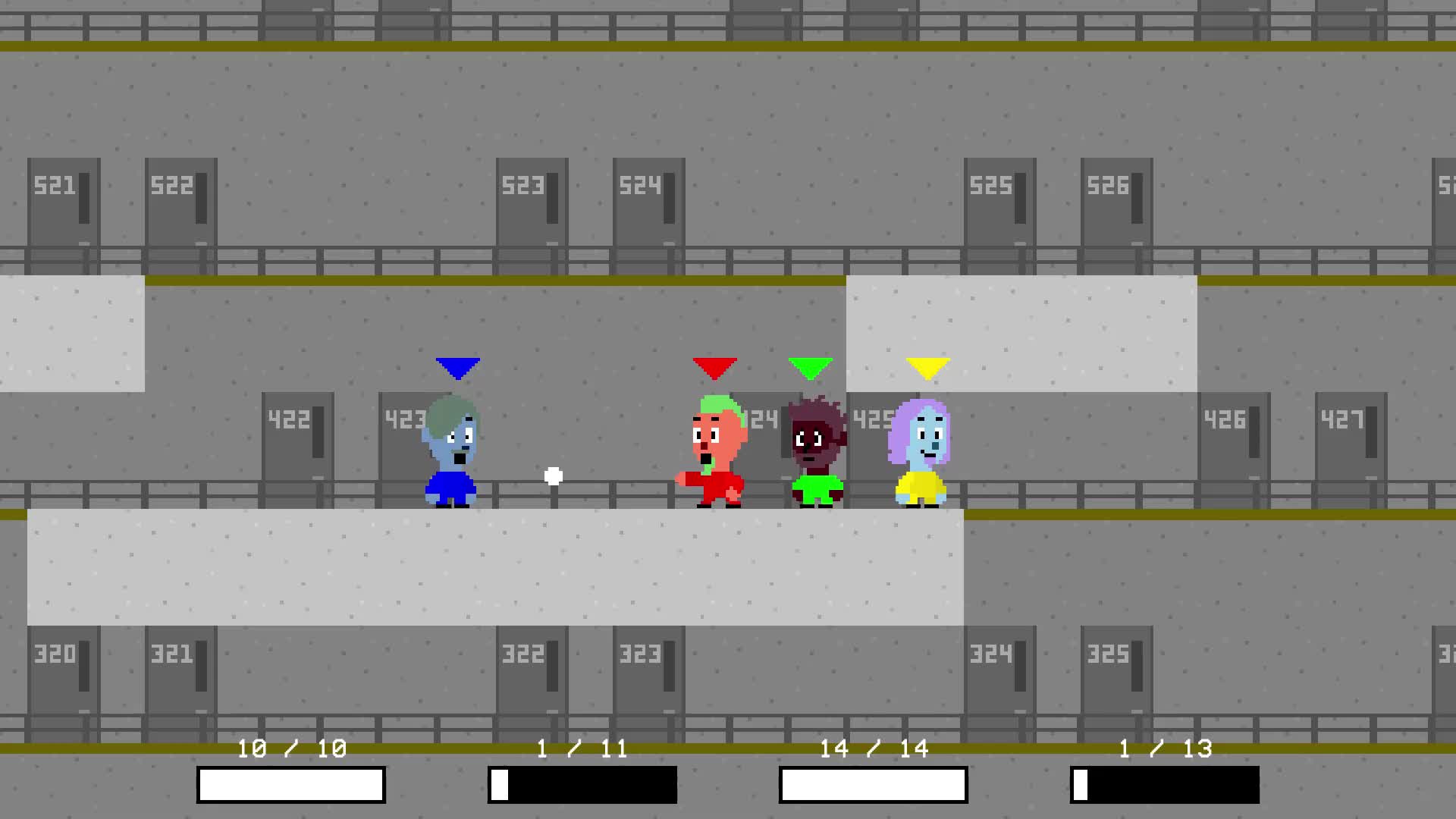So, you're here because you want to know more about at home altercation? Let’s break it down. Picture this: you're chilling at home, minding your own business, when suddenly tensions rise, voices escalate, and BAM—you’ve got a full-blown argument on your hands. It happens to the best of us, but what exactly is an at-home altercation, why does it occur, and how can we manage it? That's what we're diving into today, my friend.
Whether it’s a disagreement with your partner, a heated debate with your sibling, or even a clash with your roommates, at home altercation is a common occurrence. But here’s the thing—it doesn’t have to spiral out of control. Understanding the root causes, learning effective communication strategies, and building healthier relationships can make all the difference. Ready to learn how to turn the chaos into calm? Let’s go!
Before we dive deeper, let me just say this: conflict isn’t inherently bad. In fact, it can be a powerful tool for growth—if handled the right way. But when things get out of hand, it can lead to emotional distress, broken relationships, and even physical harm. That’s why we’re here—to help you navigate these tricky situations like a pro. Keep reading, and you’ll discover everything you need to know about at home altercation.
- Massage Places Near Me Find Your Ultimate Relaxation Spot
- Incredible Insights On Informal Macro A Deep Dive Into The Hidden Economy
What Exactly Is At Home Altercation?
Alright, let’s start with the basics. An at home altercation refers to any kind of conflict, argument, or disagreement that happens within the confines of your home. It can range from a simple misunderstanding to a full-blown shouting match. And trust me, it’s more common than you think.
According to a study published in the Journal of Family Psychology, around 60% of households experience some form of conflict on a regular basis. That’s a lot of arguing, folks! But here’s the kicker: most of these conflicts are triggered by everyday issues like chores, finances, or even personal space.
So, why do these altercations happen? Well, there are a few key factors at play. Stress, lack of communication, unresolved issues, and even personality differences can all contribute to the perfect storm of domestic discord. But don’t worry—we’ll get into how to handle all of that in just a bit.
- Unveiling The Mystery Of 17cm Things A Deep Dive Into Everyday Objects
- Richie The Barber Before The Untold Story Of A Haircut Legend
Common Causes of At Home Altercation
Now that we’ve established what at home altercation is, let’s talk about why it happens. Understanding the root causes is the first step toward resolving them. Here are some of the most common triggers:
- Stress and Pressure: Life can be overwhelming, and when stress builds up, it often spills over into our personal relationships.
- Communication Breakdown: Misunderstandings and lack of open communication are major culprits in household conflicts.
- Unresolved Issues: Bottling up emotions or ignoring problems can lead to explosive arguments down the line.
- Personality Clashes: Let’s face it—sometimes people just have different temperaments, and that can lead to friction.
- Financial Strain: Money troubles are one of the leading causes of arguments in households worldwide.
See, these issues aren’t unique to you or your family. They’re universal challenges that almost everyone faces at some point. The key is recognizing them and addressing them before they escalate.
Signs of an Escalating Altercation
Before things get out of control, there are usually warning signs that an at home altercation is brewing. Pay attention to these red flags:
- Increased tension in the household
- Raised voices and aggressive language
- Body language like crossed arms or clenched fists
- Withdrawal or avoidance behaviors
- Repetitive complaints or criticisms
These signs are like a fire alarm going off in your brain. When you notice them, it’s time to step in and de-escalate the situation before it gets worse. Ignoring them can lead to bigger problems down the road.
Effective Strategies for Managing Conflict
Okay, so you’ve identified the problem. Now what? Here’s where the magic happens. There are several strategies you can use to manage at home altercation effectively:
1. Stay Calm and Collected
When emotions run high, it’s easy to lose your cool. But here’s the thing: reacting emotionally only makes the situation worse. Take a deep breath, count to ten, and remind yourself that you’re in control. Trust me, it works wonders.
2. Practice Active Listening
One of the biggest mistakes people make during conflicts is not listening to each other. Instead of waiting for your turn to speak, focus on truly understanding what the other person is saying. Nod, ask questions, and show empathy. It makes a huge difference.
3. Use “I” Statements
Instead of pointing fingers and blaming others, try using “I” statements. For example, say “I feel frustrated when…” instead of “You always…” This shifts the focus from accusation to personal experience, making it easier to resolve issues.
4. Take a Break if Needed
Not every argument needs to be resolved immediately. Sometimes, taking a step back and giving yourself (and the other person) some space can help clear your head and approach the situation with fresh eyes.
These strategies might sound simple, but they’re incredibly powerful when applied correctly. Give them a try next time you find yourself in the middle of a heated discussion.
Preventing Future Altercations
Wouldn’t it be great if we could avoid at home altercation altogether? While we can’t eliminate conflict entirely, we can certainly reduce its frequency and intensity. Here are some prevention tips:
- Set Boundaries: Establish clear rules and expectations for behavior in the household.
- Communicate Openly: Create a safe space where everyone feels comfortable sharing their thoughts and feelings.
- Address Issues Early: Don’t let small problems snowball into bigger ones. Tackle them head-on as soon as they arise.
- Practice Empathy: Try to see things from the other person’s perspective. It can help you understand their motivations and reduce misunderstandings.
- Seek Professional Help if Needed: If conflicts become too frequent or intense, consider reaching out to a therapist or counselor for guidance.
By implementing these strategies, you can create a more peaceful and harmonious home environment. And let’s be honest—who doesn’t want that?
The Role of Emotional Intelligence in Conflict Resolution
Emotional intelligence, or EQ, plays a crucial role in managing at home altercation. It’s all about being aware of your own emotions and the emotions of others, and using that awareness to guide your behavior.
People with high EQ are better at regulating their emotions, understanding others, and resolving conflicts peacefully. They’re also more likely to maintain healthy relationships over the long term. So, how can you boost your EQ? Here are a few tips:
- Practice self-awareness by reflecting on your emotions and reactions.
- Develop empathy by putting yourself in others’ shoes.
- Improve your communication skills through active listening and clear expression.
- Learn to manage stress and stay calm under pressure.
Investing in your emotional intelligence can have a profound impact on your ability to handle at home altercation effectively.
Legal and Safety Considerations
While most at home altercation situations are resolvable through communication and understanding, there are times when legal or safety concerns come into play. If you ever feel threatened or unsafe, it’s important to take action immediately.
Here are some steps you can take:
- Seek Help: Reach out to friends, family, or professionals who can provide support.
- Document the Incident: Keep a record of any altercations, including dates, times, and details.
- Contact Authorities if Necessary: If you feel physically endangered, don’t hesitate to call the police or seek legal assistance.
Your safety and well-being should always be your top priority. Never hesitate to seek help if you need it.
Real-Life Examples of At Home Altercation
Let’s look at a few real-life scenarios to see how at home altercation plays out in different situations:
Example 1: Sibling Rivalry
Two siblings argue over who gets to use the car for the weekend. Tempers flare, and soon they’re shouting at each other. Instead of escalating the situation, they decide to sit down and discuss their needs. They agree to split the time evenly, and both parties walk away happy.
Example 2: Parent-Child Conflict
A teenager gets upset when their parent sets a curfew. They feel like their freedom is being restricted, while the parent is concerned about their safety. Through open communication and compromise, they come to an agreement that satisfies both sides.
Example 3: Roommate Disagreement
Two roommates clash over household chores. One feels like they’re doing all the work, while the other thinks everything is fine. By creating a chore chart and setting clear expectations, they manage to resolve the issue and improve their living situation.
These examples show that with the right approach, even the toughest at home altercation can be resolved peacefully.
Conclusion: Taking Control of Your Home Environment
There you have it—a comprehensive guide to understanding, handling, and preventing at home altercation. Remember, conflict is a natural part of life, but how we respond to it makes all the difference.
By staying calm, communicating effectively, and practicing empathy, you can transform even the toughest situations into opportunities for growth. And if things ever get too overwhelming, don’t hesitate to seek help from professionals who can provide guidance and support.
So, what’s your next step? Whether it’s setting boundaries, improving your communication skills, or boosting your emotional intelligence, take action today to create a more peaceful and harmonious home environment. And don’t forget to share this article with your friends and family—because knowledge is power, my friend!
Table of Contents
At Home Altercation: Understanding, Handling, and Preventing Conflict
What Exactly Is At Home Altercation?
Common Causes of At Home Altercation
Signs of an Escalating Altercation
Effective Strategies for Managing Conflict
Preventing Future Altercations
The Role of Emotional Intelligence in Conflict Resolution
Legal and Safety Considerations
- 8x6 Room The Ultimate Guide To Maximizing Your Space
- Did Sza Lip Sync The Halftime Show Unveiling The Truth Behind The Performance


